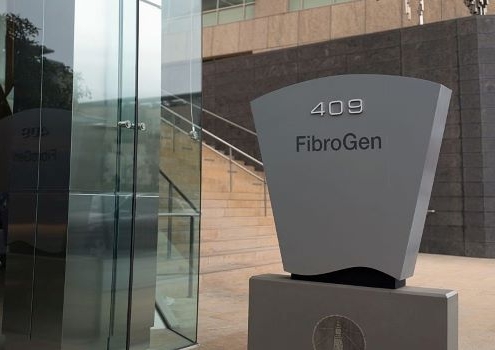SEC Wades into Confusion Over FibroGen Safety Data in Anemia Drug
SEC Wades into Confusion Over FibroGen Safety Data in Anemia Drug
According to a filing with the U.S. Security and Exchange Commission (SEC), FibroGen is tangled up in a Securities Class Action Litigation as well as Derivative Litigation regarding clinical trial data for its drug Roxadustat, which it is developing with AstraZeneca and Astellas. In addition, in the fourth quarter of 2021, the SEC issued a subpoena “requesting documents related to roxadustat’s pooled cardiovascular safety data.”
In April 2021, ahead of a U.S. Food and Drug Administration review of its New Drug Application for roxadustat, the company was struggling to clarify “certain prior disclosures” of the primary cardiovascular safety data from the Phase III studies of roxadustat, which it was developing for anemia associated with chronic kidney disease (CKD).
At that time, Enrique Conterno, CEO of FibroGen, stated, “As members of senior management were preparing for the upcoming FDA Advisory Committee meeting, we became aware that the primary cardiovascular safety analyses included post-hoc changes to the stratification factors. While all of the analyses set forth below, including the differences in the stratification factors, were included in the NDA, we promptly decided to clarify this issue with the FDA and communicate with the scientific and investment communities.”
Conterno also claimed that this did not have any impact on the company’s comparability data to Amgen and Johnson & Johnson‘s Epogen/Procrit (epoetin alfa) in dialysis-dependent patients and placebo in non-dialysis dependent patients.
FibroGen and AstraZeneca were trying to get Roxadustat approved for anemia caused by chronic kidney disease. A primary key measure of its marketability was its cardiac safety profile, where other drugs in the arena have problems. In 2019, the two companies reported that roxadustat has a matching safety profile on a composite of major cardiac events compared to placebo in the nondialysis-dependent (NDD) pooled safety analysis. It was similar to Amgen and Johnson & Johnson‘s Epogen/Procrit in the dialysis-dependent (DD) group and was even better in the incident dialysis subpopulation.
But the April 2021 data clarification announcement raised questions as to whether this caused it to look better than it would have under other, predefined clinical study benchmarks. FibroGen stock crashed 43% at the news.
In July 2021, the FDA’s Cardiovascular and Renal Drugs Advisory Committee (CRDAD) voted 13 to 1 that the benefit-risk profile of the drug didn’t support approval for anemia in CKD in NDD adults and 12 to 2 that the benefit-risk profile didn’t support approval for anemia in CKD in DD adults.
Then in August 2021, the FDA issued a Complete Response Letter (CRL) indicating it wouldn’t approve the NDA in its current form. It requested another clinical trial to analyze the drug’s safety in the NDD and DD patient populations.
Roxadustat is approved in Europe, Japan, China, Chile and South Korea for anemia of CKD in adults on dialysis and not on dialysis. Astellas and FibroGen are working together to develop and commercialize the drug for anemia in territories including Japan, Europe, Turkey, Russia and the Commonwealth of Independent States, the Middle East, and South Africa. FibroGen and AstraZeneca are partnering on the drug for anemia in the U.S., China, and other markets not licensed to Astellas.
The drug is an oral medication, the first in a new class of drugs made up of HIF-PH inhibitors that promote red blood cell production, improved iron absorption and mobilization, and downregulation of hepcidin.
FibroGen and AstraZeneca indicate that they are still in discussions with the FDA on a path forward for the drug in the U.S., according to Conterno on this week’s fourth-quarter conference call.




